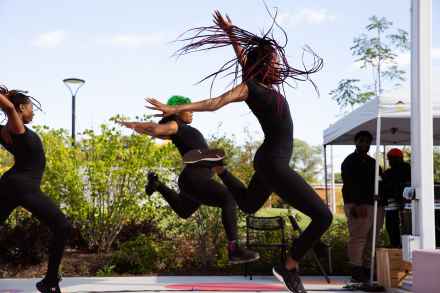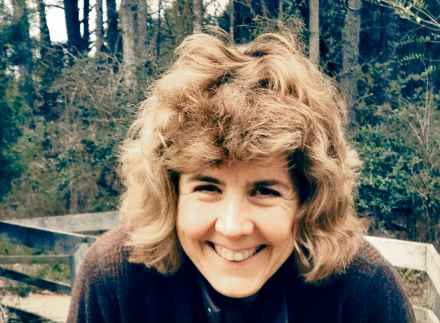UChicago students engage their senses outside the classroom
On an unusually warm November day, a group of University of Chicago students walked through Jackson Park in Chicago, listening for natural and unnatural sounds. Bird calls were drowned out by crunching gravel, and the hum of cars mixed with rustling leaves. Though the park appeared a natural oasis, it sounded far from bucolic.
This Autumn Quarter, the course “Sensing the Anthropocene” challenged students to engage senses often dulled in the classroom: hearing, touch, taste and smell. Co-taught by UChicago scholars Amber Ginsburg and Jennifer Scappettone, the course took students across Chicago to grapple with how our built urban environment has transformed the natural one.



